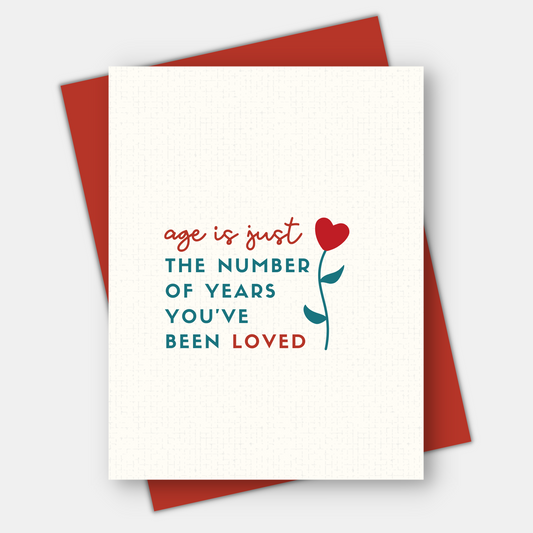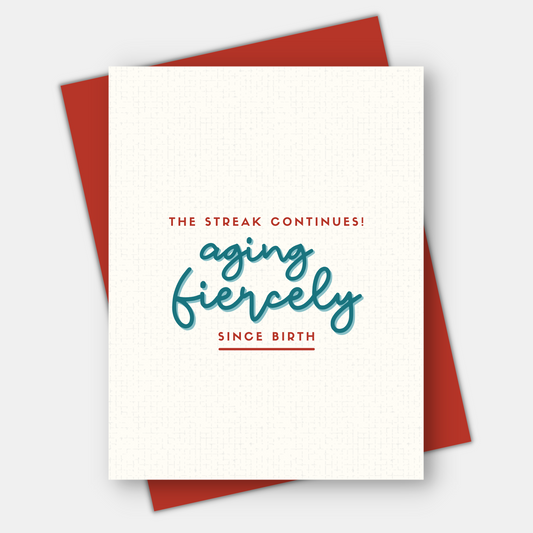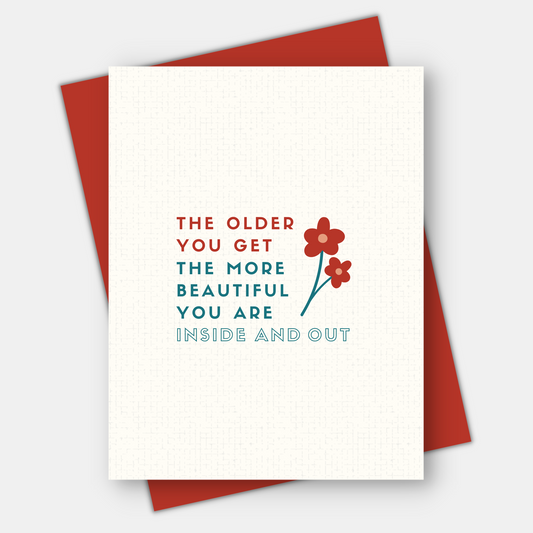It’s one thing to ‘own’ your age, but what about owning the age of your children? Especially when they hit a milestone birthday and are now considered middle-aged and on the downhill slide to becoming ‘old.’ Does that make me older than old?

My son recently turned 40, and I find myself sorting through his feelings about age and mine, too. How can I have a 40-year-old? I mean, biologically, it’s possible as a 62-year-old woman. But where has the time gone?
I remember feeling young when I had my first child in 1983 at 22, even though I was married, had a secure job, and owned a home. Looking back, I wonder why I was so hurried to grow up.
As a pro-age advocate and understanding how age beliefs impact longevity, it’s interesting to think about how the age we become a parent affects our feelings about age.
As I mull through my internalized ageism on this topic, here are my thoughts about my child turning 40.
Kids are a clue in the age-guessing game
One of the ways we make sense of age is by playing the age ‘guessing game.’ Many people think knowing the age of your kids is a sure giveaway, especially as they hit milestone birthdays.
There are flaws in this guessing game
- There is at least a 30-year age range of when a woman can become a mother.
- There is no ‘ideal’ age to become a mother. The timing is a highly personal and individual choice.
- Many people choose not to have children or cannot have children.
Still curious about how old someone is? First, ask yourself why you care, and if you’re still interested, find out their graduation dates. Employers have been using that tactic to zero in on the age of job candidates for decades.
Milestone birthdays amplify feelings about age
Cultural expectations influence how we feel about age, especially in America.
Milestone birthdays can amplify feelings about age, especially at age 40, when entering middle age brings up feelings about career expectations, settling in our personal life, and other life goals.
My son talked about how quickly time has gone. He wanted to accomplish a few things by age 40, including being settled in a community. He also felt the runway getting shorter regarding his life goal of being a parent.
My advice to him? Instead of thinking about what you didn’t accomplish, reflect on what you’re grateful for and what you did accomplish.
The perfect time for reflection
Milestone birthdays are the perfect time to reflect on the passage of time.
When I turned 60 a few years ago, I had a combination of emotions and thoughts about life experiences, relationships, and the path ahead in the later stages of life.
As my son turns 40, I think about how I felt when I turned 40, and he was graduating from high school.
When my parents turned 40, they were dealing with a house full of middle and high school children in the 70s. Yikes.
Ageism can show up in sneaky ways.
I have to admit I was surprised by the feelings I had about my age when my son turned 40.
As a pro-age advocate, I’ve learned that when I grapple with age, I take the time to unpack those feelings.
- I remind myself that we all have internalized ageism, and it can show up in sneaky ways.
- Age is a continuum. Everyone can be on the ‘good’ or ‘bad’ side of the aging scale at some point.
- Don’t be afraid to check in about your age beliefs.
Overall, a child turning 40 can be a time for celebration, reflection, and gratitude for the bond between parent and adult child. It has been quite a journey to reach this point in life.
This may be the wisdom that comes with age.




